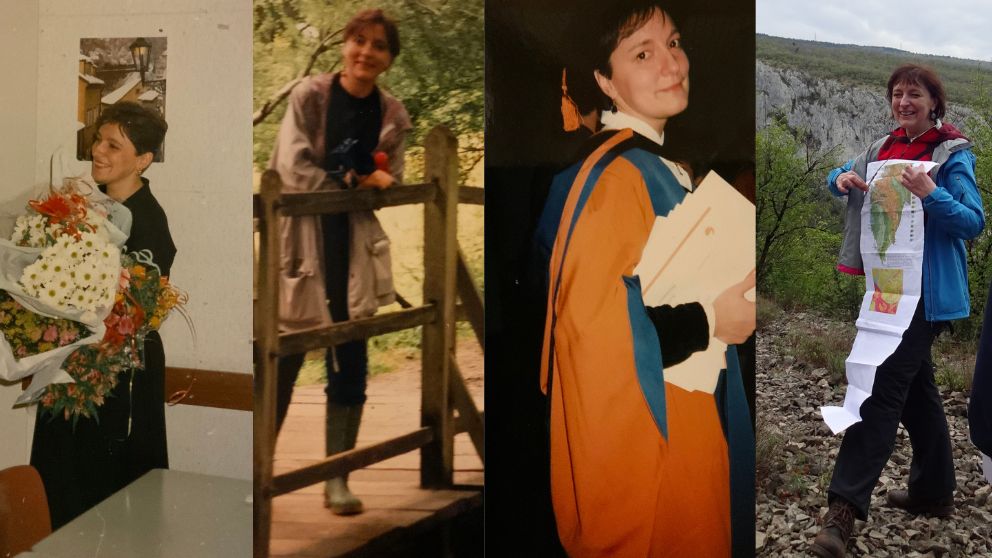In honor of International Women’s Day (IWD), LEC Voices highlights the journey of Dr. Suzi Ilic, a Senior Lecturer in Physical Geography and the EDI Lead for the Faculty of Science and Technology (FST).
Celebrated annually on March 8th, International Women’s Day offers a moment to reflect on the strides made towards gender equality and my personal journey within academia. Instituted by the United Nations in 1975, IWD’s roots trace back to the early 20th-century women’s rights movement and notably a significant protest by female textile workers in Russia on March 8, 1917. After World War II, many socialist nations, including the former Yugoslavia where I was raised, adopted this date to celebrate women.
My earliest recollections of IWD date back to my school days, when preparing small gifts for our mothers was a key part of art class. IWD also incorporated elements of Mother’s Day, and working women received flowers and invitations to celebratory lunches from their male colleagues. While this annual recognition was appreciated by many, some independent feminist groups emphasized the need for more profound changes to attain genuine gender equality. Despite progress in workplaces, responsibilities such as housework and caregiving remained predominantly female roles.
My education played a pivotal role in shaping my early perceptions of equality. Throughout school, I believed that girls had equal rights and opportunities as boys. Our teachers encouraged both genders to excel in STEM subjects, yet fewer girls pursued these fields in secondary school (ages 14-18). I was one of only four girls studying maths, physics, and computer science in the final two years. Nevertheless, I felt comfortable and enjoyed collaborating with my male classmates on these subjects. I opted to study civil engineering at university, where the gender balance in my class was more equitable. My female peers and I forged lasting friendships that continue across continents.
Upon graduation, many of us entered predominantly male construction firms, where we encountered and challenged stereotypes. I worked on construction sites overseeing water engineering projects, defying expectations as a woman and junior engineer managing more experienced male site supervisors. Although it was initially daunting, with the support of my male line manager and director, I earned their respect and credibility.
Five years into my professional journey, I seized an opportunity for postgraduate studies through a Dutch scholarship, immersing myself in computational hydraulics in the Netherlands. This transformative experience broadened my academic horizons and exposed me to diverse perspectives from students worldwide, enriching my focus on Equality, Diversity, and Inclusion (EDI).
My doctoral studies and research in the UK primarily revolved around coastal engineering and sciences, male-dominated disciplines. At several conferences and research groups, I was often the sole woman present, yet I always found support from colleagues. When I joined Lancaster University, only six women were faculty members across the three departments of what is now the Lancaster Environment Centre (LEC). Together, we served on numerous committees, representing our gender while juggling various responsibilities. Thankfully, the situation has improved, with more women faculty now fostering the growth of future female scholars. Initiatives like the Athena Swan Charter have been crucial in addressing gender disparities in science.
Despite these improvements, challenges persist, and not everyone has equally benefitted from these initiatives. While progress has been made regarding gender equality, issues of equity often remain overlooked. We frequently simplify complexities surrounding women in academia, neglecting factors such as intersectionality, parental leave, caregiving roles, domestic responsibilities, health issues linked to menstruation and menopause, and the differing career aspirations of men and women.
Amid these challenges, women are stepping into leadership roles and enacting change. Reflecting on the past year, I consider it a “women’s year.” For the first time in my career, I collaborated with more women than men, including outstanding female colleagues at the university involved in EDI committees, research projects, coastal groups, local communities, and beyond. These women—spanning academics to artists, and students to professionals—are dedicated to creating positive changes in our society.
As we commemorate IWD, it’s vital to acknowledge the contributions of allies of all genders, celebrating past achievements while recognizing the path ahead still requires our efforts.
Related Blogs
Disclaimer
The views expressed by our contributors and commenters are personal and may not necessarily reflect the opinions of Lancaster University. The blogger holds sole responsibility for the accuracy of information presented in blog posts.
Back to blog listing


